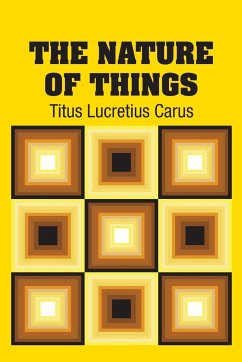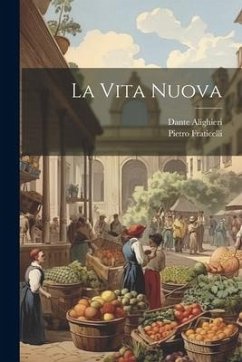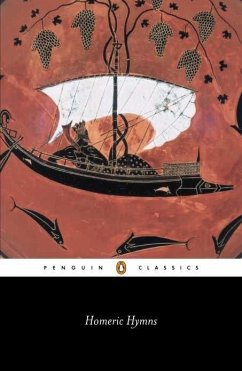Gaius Valerius Catullus
Broschiertes Buch
The Poems and Fragments of Catullus
Versandkostenfrei!
Versandfertig in über 4 Wochen
Weitere Ausgaben:

PAYBACK Punkte
9 °P sammeln!




The Poems and Fragments of Catullus
Gaius Valerius Catullus (c. 84 - c. 54 BCE) was a Roman poet of the late Roman Republic who wrote in the neoteric style, characterized by its departure from epic themes and traditional versification in favor of shorter forms such as elegiac couplets and lyrical metres. Catullus is best known for his collection of poems, often referred to as the 'Carmina' or 'The Poems and Fragments of Catullus.' His work is marked by its emotional intensity, ranging from ecstatic expressions of love for his mistress Lesbia (widely believed to be a pseudonym for Clodia Metelli), to savage and often obscene satires against his contemporaries. His poetry has been preserved through a single manuscript, and the totality of 116 poems that survive offer insights into the complex social and political dynamics of his time. Catullus' remarkable blend of classical references, innovative use of Latin language, and raw exploration of personal feelings place him as a key precursor to later lyric poets. As part of the so-called 'new poets', Catullus' work reflects the Hellenistic influences and an intense emotional subjectivity, which have made his poetry endure for centuries in the Western literary canon. His verses have been extensively studied for their style, their historical context, and their influence on later poets like Horace, Ovid, and even modern writers.
Produktdetails
- Verlag: Creative Media Partners, LLC
- Seitenzahl: 132
- Erscheinungstermin: 27. Oktober 2022
- Englisch
- Abmessung: 234mm x 156mm x 7mm
- Gewicht: 195g
- ISBN-13: 9781016022521
- ISBN-10: 1016022522
- Artikelnr.: 66734277
Herstellerkennzeichnung
Libri GmbH
Europaallee 1
36244 Bad Hersfeld
gpsr@libri.de
Für dieses Produkt wurde noch keine Bewertung abgegeben. Wir würden uns sehr freuen, wenn du die erste Bewertung schreibst!
Eine Bewertung schreiben
Eine Bewertung schreiben
Andere Kunden interessierten sich für














